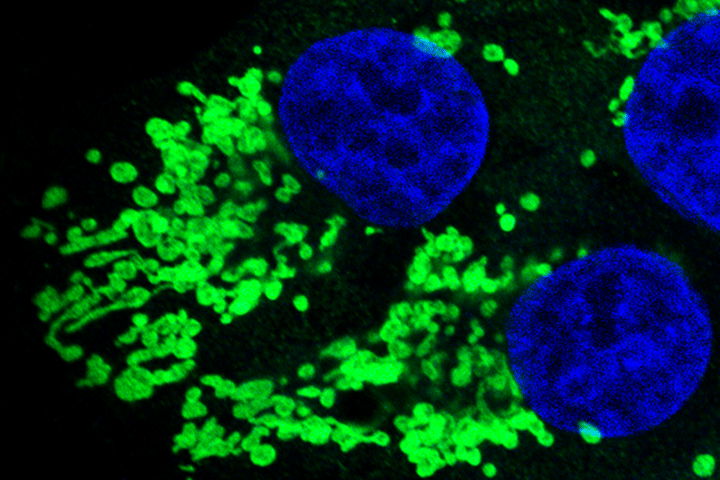Is Pancreatic Cancer Different in Black Patients?

Howard Crawford, Ph.D., never thought he’d be studying pancreatic cancer.
As a post-doc, he was researching the mechanisms behind the development of skin cancer, breast cancer, and pretty much every other type of cancer excluding the pancreas. But a funny thing happened on the way to a career as one of the leading experts in the cell and molecular origins of pancreatic cancer and how chronic inflammation of the pancreas leads to cancer development.
“I was a post-doc, and I was listening to a talk given by Steve Leach, who, at the time, was a professor at Vanderbilt, and he was talking about pancreatic cancer,” recalls Crawford. “I didn’t know much about pancreatic cancer, but I believed that my interest in cancer biology could make a difference in the disease.”
Fast forward two decades, and Crawford now serves as scientific director of the Henry Ford Health Pancreatic Cancer Center in Detroit. One of the goals of the center is to add to the body of knowledge that can potentially lead to an earlier diagnosis of pancreatic cancer, a disease that is too often diagnosed at advanced stages. The team is looking for biomarkers that can lead to pancreatic cancer development and that will also support a biorepository for future research efforts. They are working with organoids to support precision medicine drug development as well as performing data analysis to find patterns in cancer development and treatment response.
Is It the Same Disease Genetically?
While overall cancer incidence and mortality rates are declining across all groups, disparities across the cancer continuum remain a public health challenge. The incidence rate for Black people is 20 percent higher and outcomes are less positive than rates among the white population. Yet, pancreatic cancer patients from minority groups continue to be significantly underrepresented in clinical trials, which may obscure disease causes and has the potential to exacerbate disparities in the development of novel therapies.
Henry Ford Health serves a large Black population, including Detroit, where almost 80 percent of the residents are Black. While it’s been well-documented that incidence rates for pancreatic cancer among Black people are higher and outcomes are poorer, scientists don’t have a cohesive answer as to why. Some research points to social and economic factors such as lack of access to care, higher rates of smoking and obesity, and a distrust of the medical community as some of the potential culprits for this disparity. But Crawford and his team are looking at this disparity from another angle—that of genetics—while taking into account social and economic factors.
A New Retrospective Study
Crawford and his team are starting a retrospective study analyzing stored tumor samples of 75 Black patients and 75 non-Black patients treated at the Henry Ford Pancreatic Cancer Center, where 25-30 percent of people diagnosed with the disease are Black. The study will determine if genomic and cellular differences account for the higher rates and poorer outcomes in Black patients. He is studying molecular subtypes of pancreatic cancer as well.
As a component of their research, Crawford and his team are examining the environment within the Detroit area and considering the neighborhoods where patients live as well as their diets, as these factors can influence the incidence and progression of pancreatic cancer.
“Henry Ford is uniquely suited for this work. The patients are here,” Crawford says. “And we want to know if pancreatic cancer among this Black population of patients is exactly the same disease as it is in other populations we see. Or is there a different distribution of molecular subtypes, and if there is, is that accompanied by a distinct immune response?. The molecular aspect of pancreatic cancer among a Black population is something that absolutely needs to be studied.”
Pancreatic cancer is typically categorized by its size, location, and whether it has spread to other organs. But recent technologies have allowed researchers to delve more deeply into the biological foundations of a tumor and to perform very detailed genomic and transcriptional analysis. Generally, scientists refer to pancreatic cancer subtypes as “basal-like” and “classical.” These so-called subtypes may have significant relevance in terms of a patient’s prognosis as well as providing important clues as to what current treatments or investigative treatments may be most beneficial to patients.
The team will examine pancreatic tumor samples existing within Henry Ford Health’s tumor bank from Black patients and perform subtype analysis and sequencing to understand the molecular and cellular mechanisms that are driving pancreatic cancer in this population.
The project will take about two years, and it will create a unique data set that will allow researchers to identify potential mechanisms driving the higher incidence and poorer prognosis of pancreatic cancer in Black patients. “As we move forward, and if this proves successful, what we would want to do is to include collection of fresh tumor tissue from Black patients,” Crawford explains, since that would allow researchers to perform more phenotypic analysis. It would also allow researchers to generate tumor-derived organoids in order to enhance phenotypic and drug sensitivity studies of living tumor tissue.
“While many of the known genetic drivers of pancreatic cancer are shared, most are not targetable. However, mutations in genes that can make pancreatic cancer more aggressive can be unique to each patient,” he adds. “Molecular profiling that sequences a tumor’s DNA and RNA can help us tailor the best treatment to each unique individual.” The American Society of Clinical Oncology reinforced this approach by issuing guidelines that call for all pancreatic cancer patients who are likely to benefit from treatment after chemotherapy to undergo molecular profiling.
Crawford is excited about the onset of the study for many reasons, the most important of which, he says, is potentially to get more clarity in terms of tumor type affecting the Black population. “You have to look at incidence and outcomes [among the Black population] as being multifactorial, and parsing all those issues can be mind-blowing, but very important,” he says.
“Adding knowledge about molecular subtypes is also absolutely vital if we are going to help anyone beat this disease. Right now, it can potentially affect treatment. In the future, it can affect drug development that can potentially help more people. If we learn something novel about the biology of any one person’s cancer, we’ll be learning something that may help every patient in the future.”






